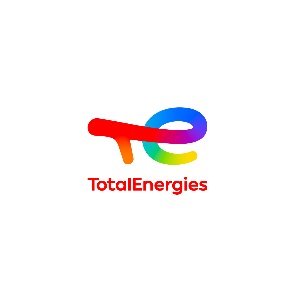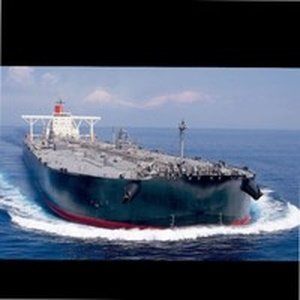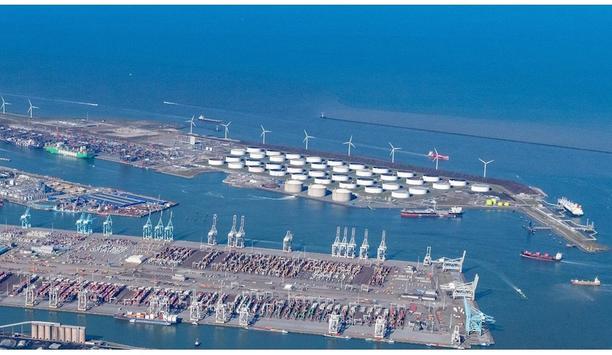TotalEnergies - Experts & Thought Leaders
Latest TotalEnergies news & announcements
The CO2 Efficient Transport via Ocean (CETO) joint industry project (JiP) concluded recently with the release of a report setting out the findings of the Technology Qualification performed in the study. The project partners, which included Equinor, Gassco, Shell, TotalEnergies, and DNV, have found that there are no technological showstoppers to a low-pressure CO2 ship transport chain. CETO was funded by the project partners and Gassonova through the CLIMIT-Demo programme. Carbon Capture and Storage (CCS) For Carbon Capture and Storage (CCS) to play a significant role in helping the world reduce emissions, transporting large amounts of CO2 will be vital. Pipelines will be an option, but where the capture source and storage sites are unable to be easily connected, ship transport will be crucial. To achieve the scale required for commercial viability, however, low-pressure ship solutions (approximately 7 bar at -49ºC) are regarded as an attractive alternative. CO2 ship transport value chain The project partners examined fundamental aspects of the CO2 ship transport value chain During the Technology Qualification process, the project partners examined fundamental aspects of the CO2 ship transport value chain. The production of liquid CO2, the characteristics and impurities in liquid CO2 that could affect transport, the plant concept, cargo handling, to the basic design of a 30,000 m3 Liquid CO2 carrier were all evaluated and assessed. Testing campaign CETO demonstrated that shipping CO2 at low-pressure conditions is feasible and that the technology is ready for first use. In terms of the vessel design, the activities show that a dedicated LCO2 carrier could be designed according to the relevant international rules and regulations, including the IMO IGC code and the DNV ship rules for global strength and stability. The testing campaign on a medium-scale pilot plant demonstrated that cargo handling operations in the range of 6 to 9 barg could be carried out without dry ice formation. Design accuracy and suitability There were aspects of the transport chain that would require particular attention during project development Finally, the accuracy and suitability of design process simulation tools were benchmarked with good agreement against experimental tests, and the benefits of dynamic process simulations on a full-scale design case were demonstrated. However, there were aspects of the transport chain that would require particular attention during project development, such as material selection for cargo tanks, fatigue, and sloshing loads. Low-pressure solution Erik Mathias Sørhaug, Business Development Director CO2 Shipping at DNV, said, “It has been an honour for DNV to lead this JIP initiated by the four CCS pioneers, TotalEnergies, Shell, Equinor, and Gassco." "The project has demonstrated that a low-pressure solution is technically feasible which again will enable low-cost transportation solutions for CCS projects.” Economic viability Lee Teng-Huar, General Manager of Maritime Operations, Asia Pacific and Middle East at Shell, said, “The conclusions from the CETO JIP signify a crucial milestone in advancing CCS technology." "The optimisation of low-pressure liquid CO2 transportation can help bolster the economic viability of CCS initiatives and fast-track the ongoing journey towards a more sustainable and lower-carbon future for the industry.” CO2 transport and injection capacity Ola Miljeteig, Vice President, of R&D CCS solutions at Equinor, said, “Equinor is excited that the technology risks around low-pressure CO2 ship transport are now reduced." "The low-pressure technology is relevant for reaching our increased ambitions of 30-50 million tons per year of CO2 transport and injection capacity by 2035.” Comprehensive, optimal, and flexible transport Svein-Erik Losnegård, Vice President of Research and Development at Gassco, said, “Gassco is pleased to contribute to the development of low-pressure CO2 ship transport technology and to see that the CETO project has succeeded in reducing the associated technology risks." "Maturity and readiness of different transport solutions will be of great value in the establishment of a comprehensive, optimal, and flexible transport system in the CCS value chain.” Carbon neutrality Marie-Noelle Semeria, TotalEnergies Chief Technology Officer, TotalEnergies, said, “Bridging Carbon capture with storage or usage requires a safe and efficient CO2 transport by ship as an alternative to pipe." "TotalEnergies is proud of the milestone demonstrated by the CETO Joint-Industry-Project covering the low-pressure CO2 transport chain evaluation and derisking assessment. This milestone paves the route of the company towards carbon neutrality together with the society.”
Co2next, the open-access terminal project for temporary storage and handling of liquid CO2 in the Maasvlakte area in Rotterdam, is entering the FEED (Front-End Engineering Design) phase. Shell and TotalEnergies have joined this collaboration, which was fronted by Gasunie and Vopak up to this point. The terminal will house liquid CO2, which is supplied by vessels and will be connected to empty North Sea gas fields through the future Aramis pipeline. As a result, the terminal will become part of the Rotterdam CSS chain for CO2 storage. CO2next terminal It is scheduled to be built on the location near the Gate Terminal, and the Maasvlakte Olie Terminal, with an initial annual storage capacity of approximately 5.4 million tonnes. That capacity may potentially expand to about 15 million tonnes per year, depending on market demand and the development of Aramis and other CSS chains. Following the final investment decision, which – assuming that the relevant permits will be obtained – is scheduled for 2025, the CO2next terminal is expected to commence its commercial activities in 2028.
Jumbo Offshore has recently been awarded a contract by Yunnneg Wind Power Co., Ltd. (YWPC) for the removal of monopiles at the Yunlin Offshore Wind Farm. The contract award represents an expansion of the company’s existing scope, which has involved transport and installation of the project’s transition pieces. Under the amendment, some monopiles, which were installed during an earlier project phase, are to be removed approximately 3 m below the mean seabed level. To undertake this scope, Jumbo Offshore will mobilise the DP2 Heavy Lift Crane Vessel Fairplayer. Cargo hold for transportation The vessel will be outfitted with an underwater abrasive cutting and lifting tool as well as an ROV. With these, the Fairplayer will remove the monopiles in several sections. These will then be lifted into the vessel’s 1,400 m2 cargo hold for transportation to a local Taiwanese port, where the vessel will offload the monopile sections to the quayside. The vessel will be fitted with an aquatic abrasive cutting and lifting tool as well as an ROV Milad Sheikhi, Head of Sales and Business Development at Jumbo Offshore said, “We have been active on the Yunlin OWF project since 2021, carrying out transport and installation of transition pieces and will continue to perform this role in 2024. Being awarded this additional scope shows trust in our performance, project management, engineering and installation capabilities, for which are very grateful to our client.” Additional scope of work Brian Boutkan, Manager of Commerce at Jumbo Offshore, added, “We are very proud to have been awarded this additional scope of work on the Yunlin OWF project. We see this as a confirmation that Jumbo’s values bring real benefit to our clients. With our client-centric approach, we aim to cooperate with our customers as a partner in all that we do, in order to offer a reliable service that inspires confidence.” The Yunlin Offshore Wind Farm is developed by Yunneng Wind Power Co., Ltd., a joint project company involving Skybporn Renewables, TotalEnergies, Electricity Generating Public Company (EGCO) and Sojitz Corporation. Located in the Taiwan Strait between 8 and 17 km off Taiwan’s west coast, the 82 km2 offshore wind farm will comprise 80 wind turbine generators installed at water depths of between 8 and 35 m. Once completed, the 640 MW project will be one of the largest offshore wind farms in Taiwan, producing enough clean energy to serve the energy needs of more than 600,000 Taiwanese households.






